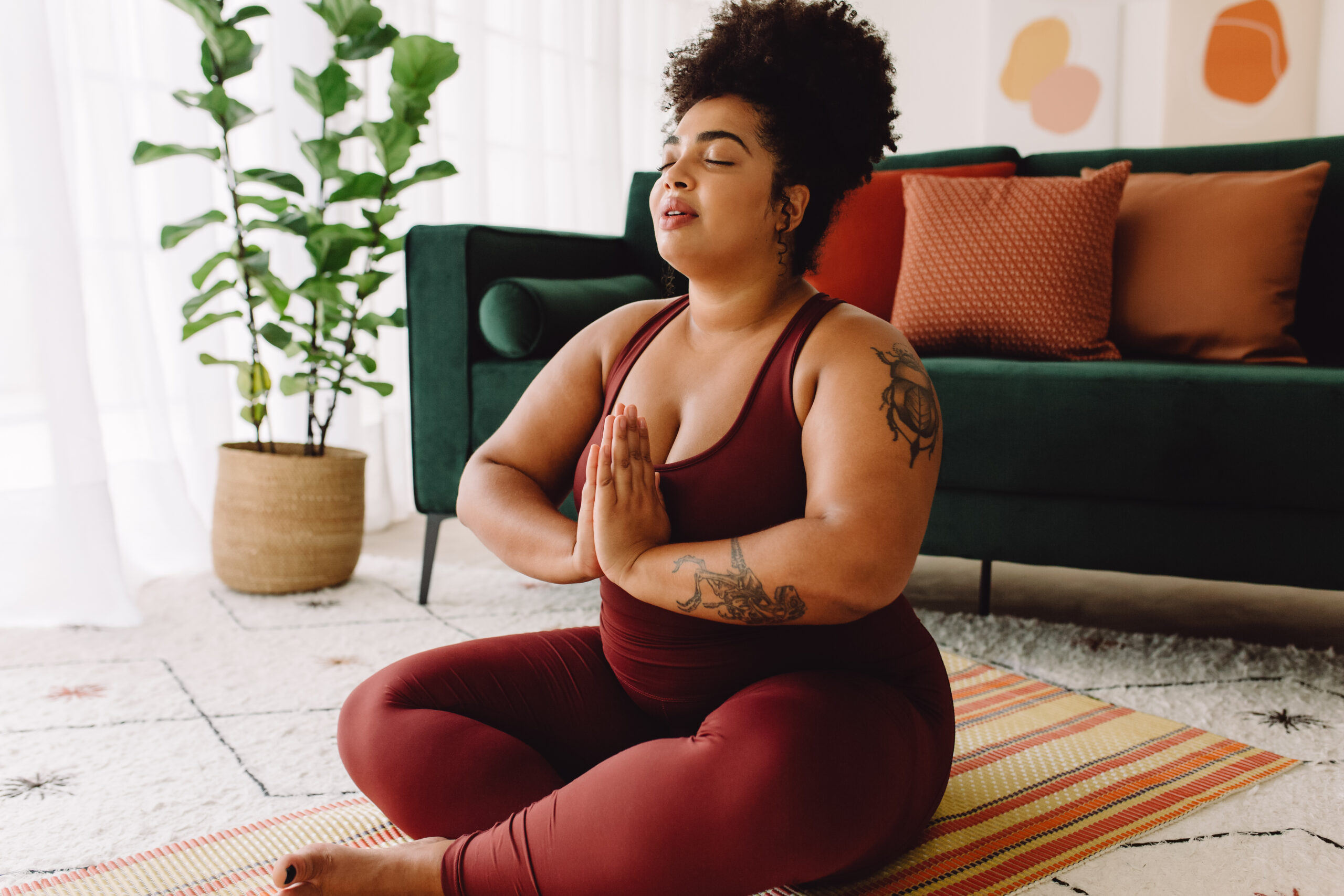Nurture Your Wellbeing: Redefine What Self-Care Means for You

Have you taken the time to consider your self-care needs lately? For some, self-care is all about pampering, a trending social media topic conjuring images of spa masks, bubble baths, and massages. But while physical self-care can be great, the real benefits come from a more holistic approach. A balanced self-care routine includes the physical, mental, emotional, and/or psycho-spiritual aspects of your life.
For example, setting boundaries in your relationships allows you to operate from a place of empowerment, safety, and autonomy; so, in that respect, establishing healthy boundaries in your relationships is a form of self-care.
Consider these additional facets of self-care and think about what you’d add to each area:
Mental Health: Regular touch points with a trusted counsellor, coach or peer group can assist with mental clarity, and supplementary tools you need for wellness.
Emotional Health: Connecting with your emotional body and its unique language can help you tap into your true feelings and align them with your authentic voice.
Psycho-spiritual Health: For some, a connection to spirituality is a way of feeling connected to others and to oneself.
Cultural Health: Often unrecognized as self-care, a connection to one’s cultural roots, traditions, or cultural nuances can enhance one’s sense of identity.
Sleep Health: Proper sleep hygiene goes a long way in supporting our physical, mental and emotional health. It not only replenishes our bodies for the next day, but it has also been proven to be responsible for mood regulation, higher energy levels, cellular restoration.
Self-care during life transitions and challenges
Stressful experiences and life challenges can have a profound impact on mental, emotional, physical, and even spiritual health. A robust self-care routine during times of uncertainty helps to minimize toxic stress and promote healthy coping strategies.
Temporary quick fixes like increased substance use may spike when we go through challenging periods in our lives. These spikes make someone vulnerable to a cycle of overuse, with a potential risk of becoming reliant on substances to manage life challenges or stressful events.
Self-care practices serve as valuable remedies to navigate the challenges of stress and life changes. You can benefit from incorporating these tools into your everyday behaviors and employ them when you encounter a difficult situation.
Finding activities that promote a greater sense of wellbeing will have a longer-lasting effect than temporary quick fixes. For example, a simple 10–20-minute walk can clear your head and leave you feeling refreshed, or at the very least, boost your heart rate and release feel-good endorphins and dopamine.
Self-care doesn’t need to be complicated. It can be as simple as visiting a dear friend, journaling, saying no when you don’t feel like going out, taking a walk in the forest, or listening to your favorite podcast.
Shifting Perspective on Self-Care and Substance Use
We have been conditioned to turn to substances when faced with obstacles or emotional upheaval. Just turn on your TV and you will notice when the characters are experiencing personal dilemmas or disputes, they’ll quickly pour a drink or mention they need one to unwind or cool off. In fact, according to a research study conducted by the University of Auckland, alcohol emerged as the predominant element, accounting for 30% of all food and beverage portrayals in prime-time TV programs. As innocuous as these scenes appear, it points to a larger conversation in society about self-medicating with substances as a form of self-care.
Stress can be a driver of substance use because of the immediate neurophysiological sensations. But excessive substance use can also lead to more stress (think increasing financial costs, risky behavior, the potential for adverse health effects, strain on relationships). This can become a vicious adaptive cycle in which the only way to deescalate life stressors is through consuming more substances, which leads to more stress.
How do we get those feel-good sensations naturally when we’re under stress without making psychoactive substances our default choice?
While it seems counterintuitive, one way to do this is to try to laugh more! Laughter is not only contagious, but it also soothes tension and calms triggered stress responses. Not only do you feel relaxed and at ease after an episode of laughter, but your mood is transformed. If laughter has such a beneficial effect on stress, just think of all the other valuable activities you can incorporate into your daily self-care routine.
Besides laughter, engaging in regular physical exercise, practicing mindfulness and meditation, spending time in nature, engaging in creative activities, connecting with loved ones, engaging in acts of kindness and gratitude, listening to uplifting music, and participating in activities that bring joy and fulfillment can all help increase the release of feel-good chemicals in your body without the use of substances.

Simple self-care strategies you can practice daily
There are so many different ways you can begin to nurture yourself on a daily basis, here are some ideas to get you started. Consider trying at least two of these practices over the next week, and think about what else you need in this time in your life to better nurture yourself:
- Change of scenery: Go for a walk in nature or find a park to read/relax.
- Write in a journal: Relieves emotional and mental tension.
- Seek out support: Counselling can be a helpful resource for times of stress or even when you want more support or guidance in your life.
- Change self-talk: shift the focus from self-blame and pessimism to a more empowering and positive perspective.
Turn this: “I always make mistakes and never get anything right.”
Into this: “I sometimes make mistakes and that is part of being human. I don’t need to be so hard on myself when this happens”. - Distance yourself: View your situation objectively for more clarity. It can help to journal about a situation you’re struggling with and revisit it a few days later.
- Get quiet: Meditate, practice mindfulness exercises or try breath work.
- Daily physical exercise: Try dancing, jogging, hiking or a simple brisk walk.
- Learn to say no: Understanding your limits will help you conserve your energy.
Your personal wellness journey will evolve over time. Remind yourself that this is an unfolding process, and just like growth, there may be uncomfortable moments. But if you are gentle and compassionate with your process, you will get to where you need to be.
Self-care is an ongoing process
Once you get past the superficial indulgences social media likes to promote as self-care and tap into the diverse landscape that is self-care; you will allow yourself the opportunity to navigate challenges with a stronger sense of worth.
You can challenge your automatic, go-to stress relievers. These include auto-pilot consumption habits, unhealthy ways of coping or patterns that provoke additional stress. Explore meaningful and immersive activities, participate in confidence-boosting and mood stabilizing hobbies or interests and create sustainable outlets for stress.
If you find yourself putting your personal wellness needs last on the list, remind yourself that you deserve and are worthy of self-care. To establish a thriving routine, value your needs, goals, and aspirations as they relate to your health and wellbeing.
Changing your relationship with substances doesn’t have to stress you out.
ALAViDA can help guide you towards finding the best strategies to improve your substance use goals.
To help you with your relationship with substances, ALAViDA Substance Use, a product of LifeSpeak Inc., offers several support options. For example, our iCBT (internet-based cognitive behavioral therapy) modules are complemented by self-directed resources or optional coaching support that may be available through the TRAiL platform.
In addition to iCBT, we provide alerts and tracking tools to stay on course and optional group coaching to help you connect with others who are also working toward their goals. Combined, these resources can help you transform the way you interact with alcohol and other substances and achieve sustainable improvements in mental health and wellness.
Note: The language surrounding substance use is constantly evolving. At ALAViDA we focus on non-judgemental language. While we work to break down stigma, please note that some of these references may include language such as ” relapse, abuse or sobriety”.
Sources:
Bumgardner, W., & Stanten, M. (2020, December 03). How walking can boost your mood and reduce stress. Verywell Fit. Retrieved from https://www.verywellfit.com/walking-for-your-mind-and-spirit-3432871 / Mayo Clinic Staff. (2021, July 29). Stress relief from laughter? It’s no joke. Mayo Clinic. Retrieved from https://www.mayoclinic.org/healthy-lifestyle/stress-management/in-depth/stress-relief/art-20044456 / Guarnotta, E., Newman, S., & Kelley, R. (2023, March 07). The connection between stress and substance abuse. Oxford Treatment Center. Retrieved from https://oxfordtreatment.com/substance-abuse/co-occurring-disorders/stress/ Coelho, S., & Gokbayrak, N. (2022, March 18). Healthy ways to cope with stress: 9 methods. PsychCentral. Retrieved from https://psychcentral.com/stress/coping-with-stress / Martinez, N., Connelly, C., Perez, A., & Calero, P. (2021, October 10). Self-care: A concept analysis. International Journal of Nursing Sciences, 8(4): 418–425. Retrieved from https://doi.org.10.1016/j.ijnss.2021.08.007